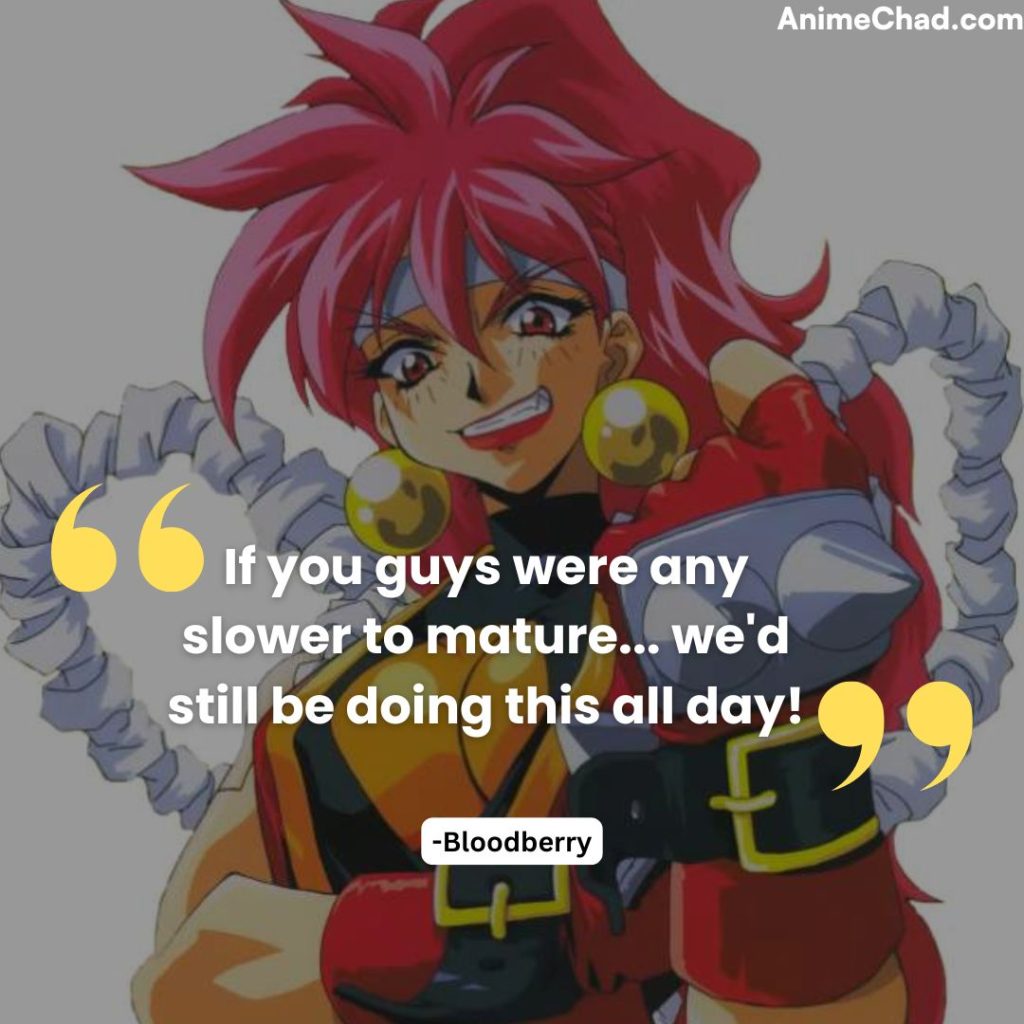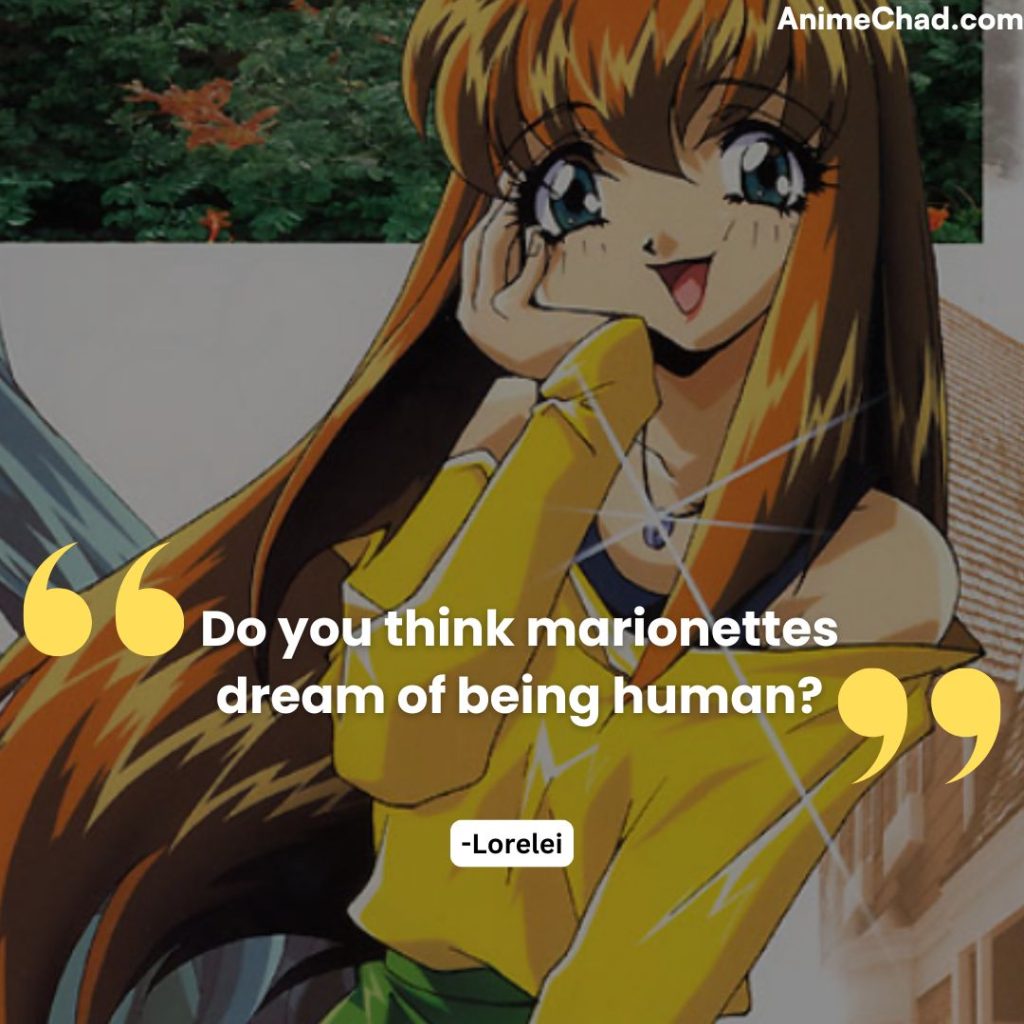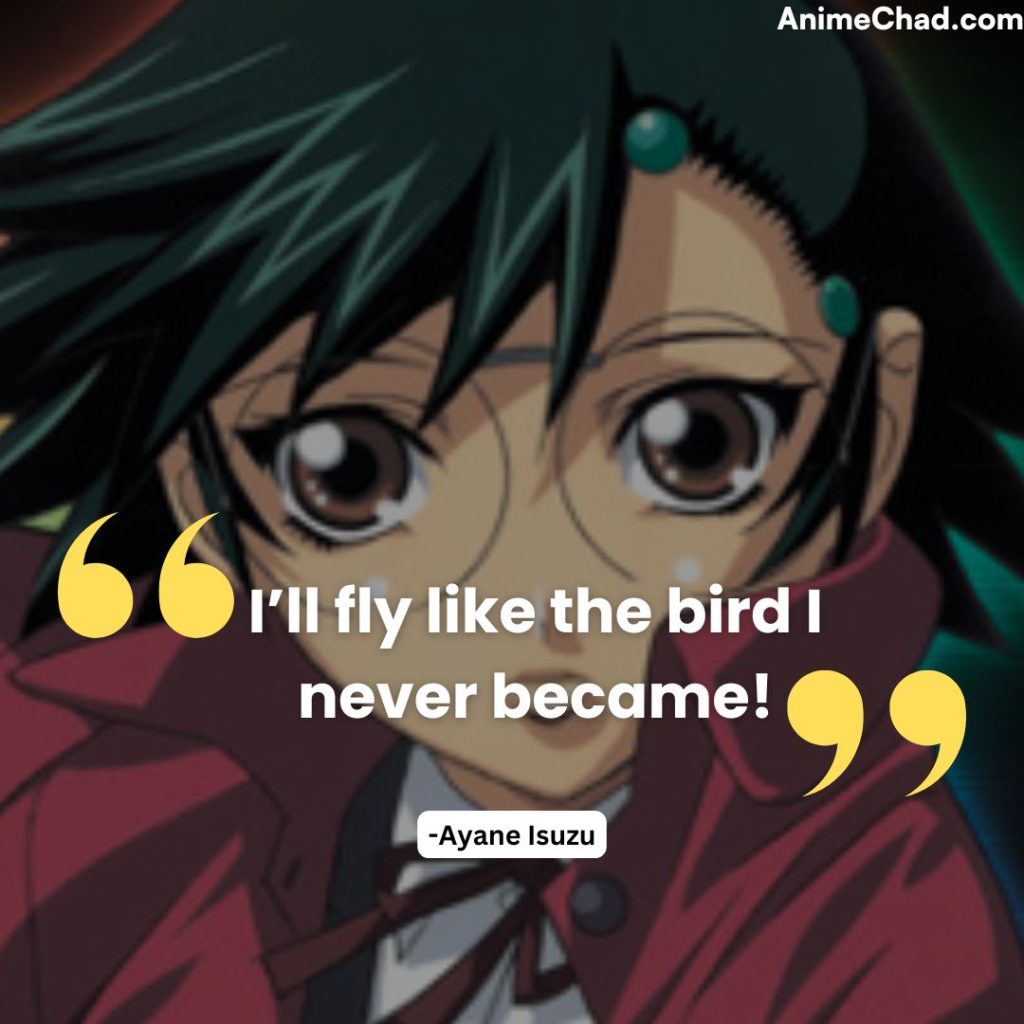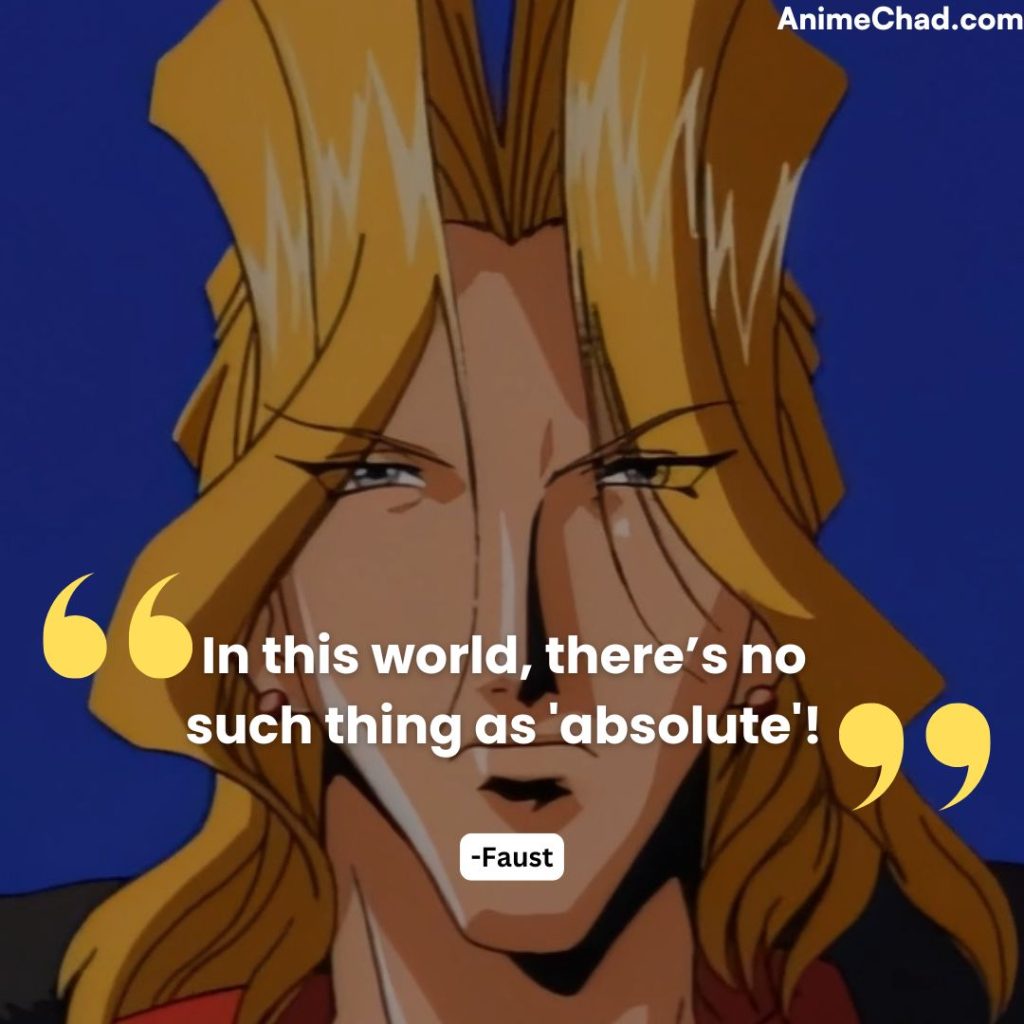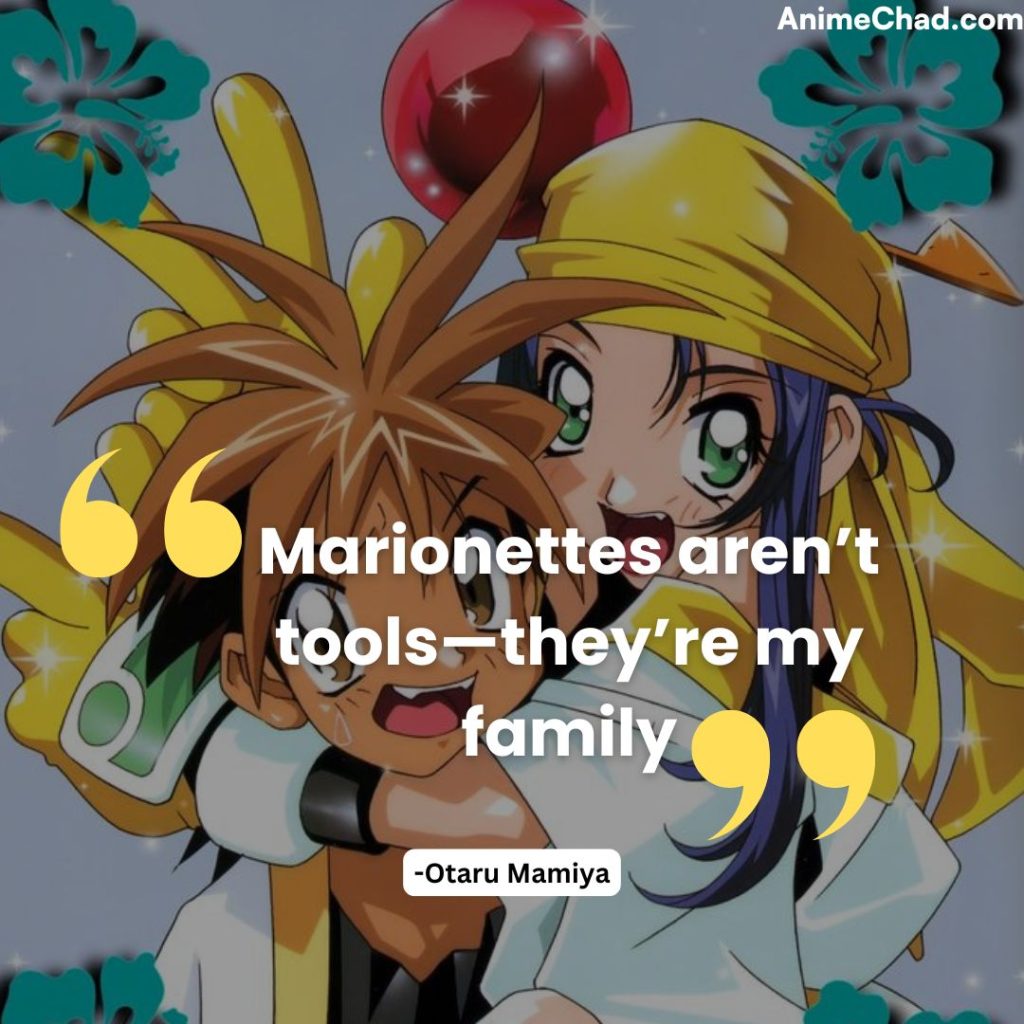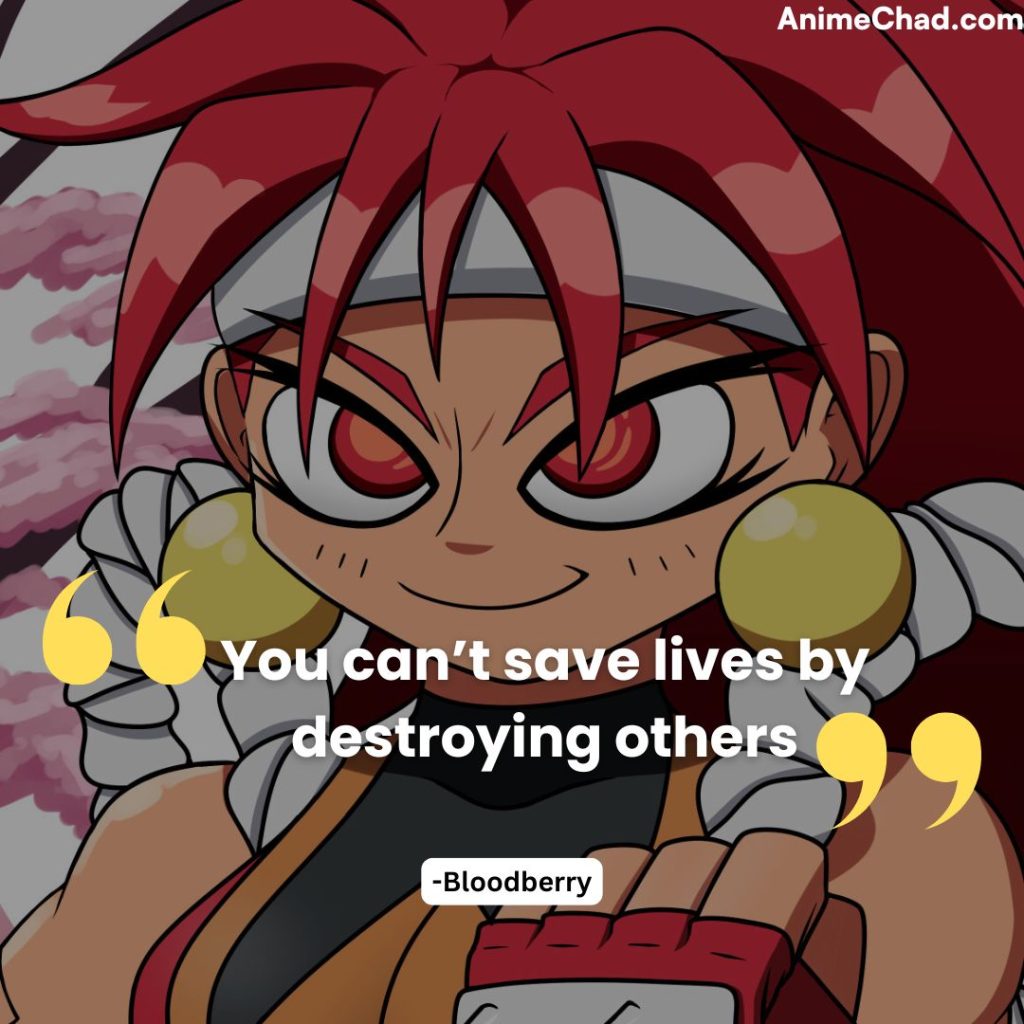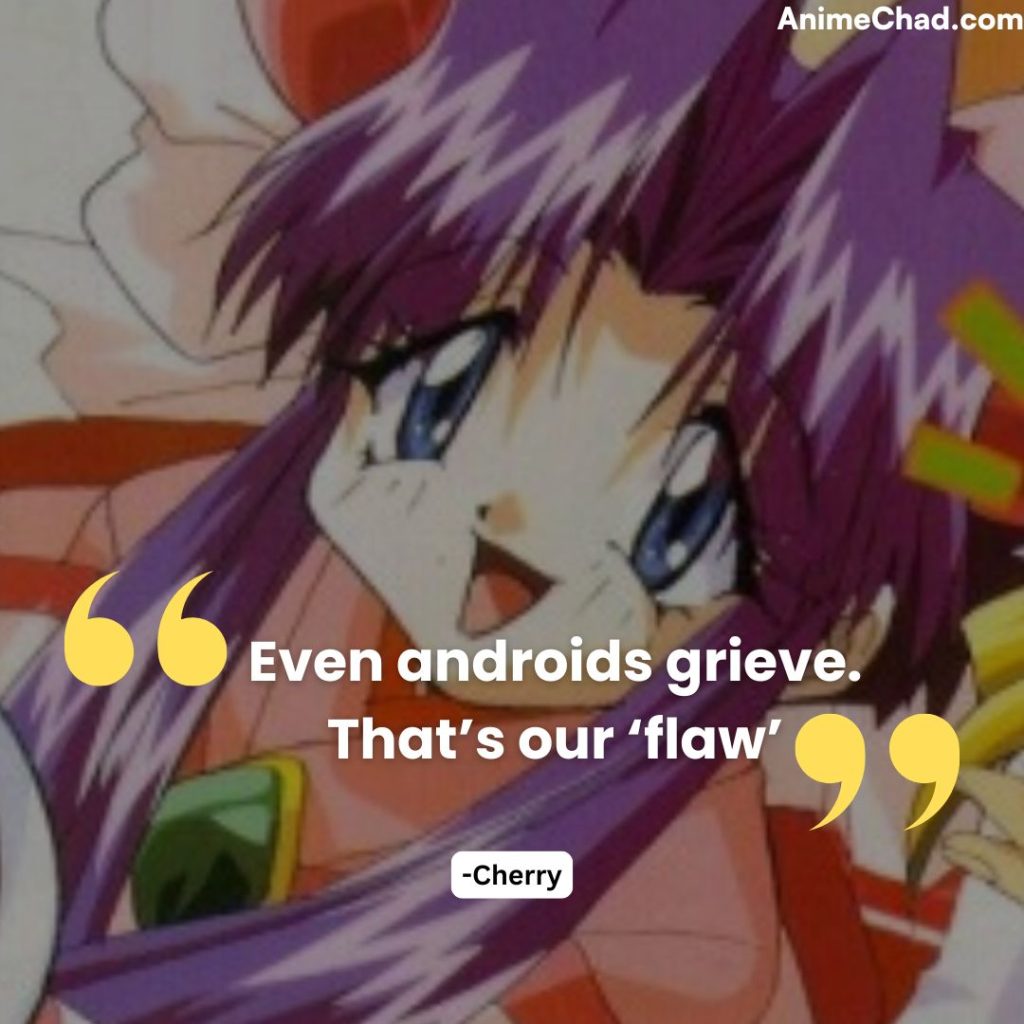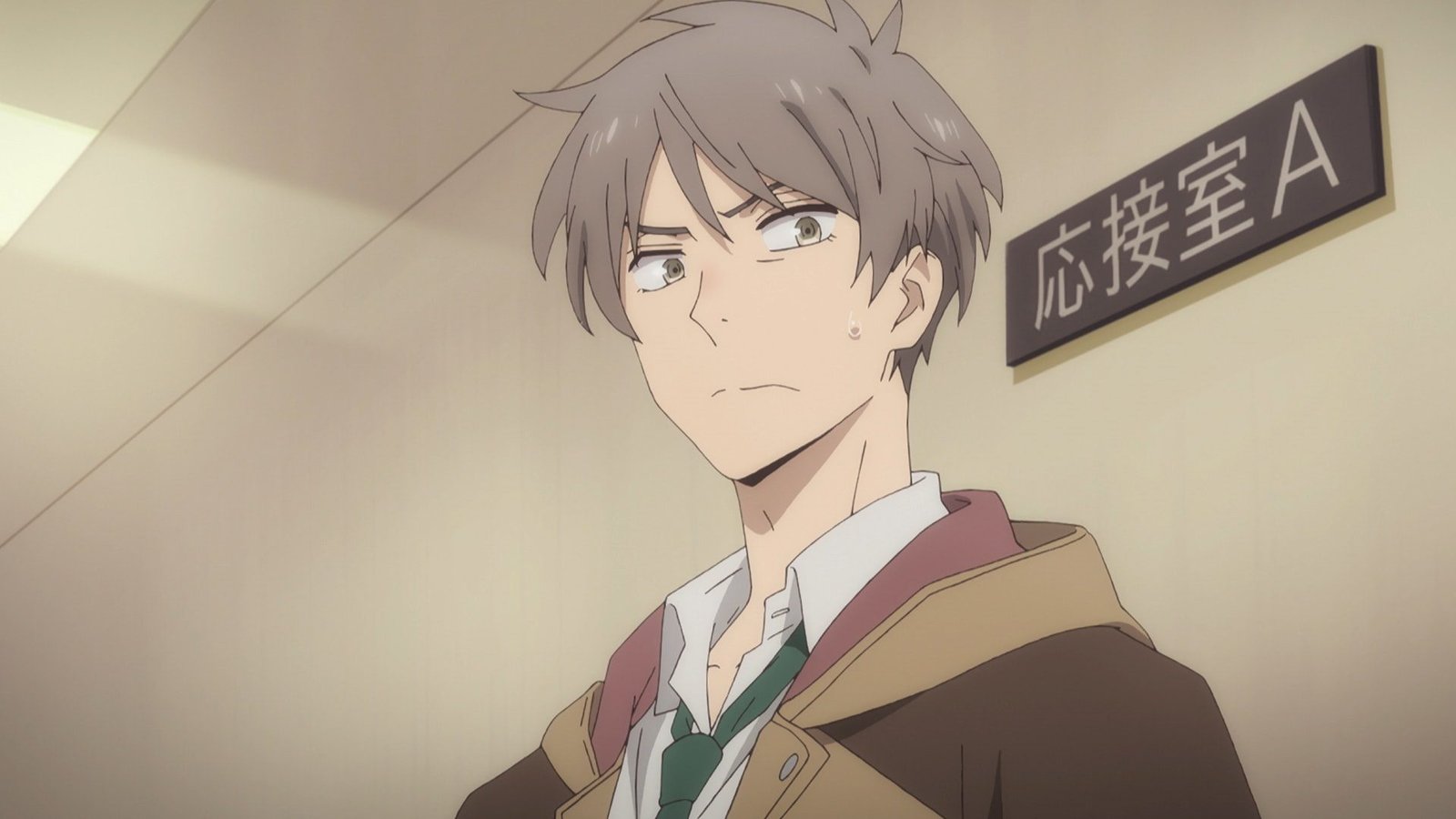Saber Marionette J follows Otaru Mamiya in a male-only world where emotionally advanced female androids (marionettes) like Lime, Cherry, and Bloodberry navigate themes of artificial humanity, love, and found family.
This curated list captures 25 pivotal quotes that highlight character growth, emotional depth, and the series’ exploration of what defines true sentience and connection.
Otaru daisuki desu!
(Episode 1: A New Friend)
Lime
Lime’s iconic declaration of love, symbolizing marionettes’ capacity for genuine emotion despite artificial origins.
We were created to love, as a reflection of God and His Love
(Episode 15: The Shogun’s Secret)
Shogun Ieyasu Tokugawa
Reveals the series’ core theme: marionettes as vessels for restoring humanity’s lost emotional purity.
Just because someone holds you doesn’t mean that it’s love
(Episode 8: Bonds Beyond Programming)
Faust
Highlights Faust’s manipulation of Tiger/Luchs/Panther, contrasting empty possession with Otaru’s genuine bonds.
If you guys were any slower to mature… we’d still be doing this all day!
(Episode 22: The Final Stand)
Bloodberry
Bloodberry’s battle cry underscoring her fierce loyalty and evolution from weapon to protector.
That wasn’t fair. I didn’t finish my pose!
(Episode 7: Ronin’s Challenge)
Ronin
Comic relief masking deeper commentary on marionettes’ struggle for dignity in human-dominated society.
Most people need this kind of love. If this weren’t true, marriage wouldn’t be the ordinary vocation
(Episode 19: Sensei’s Sacrifice)
Mitsurugi Hanagata
Hanagata’s tragic obsession exposes societal taboos against human-marionette relationships.
I prefer pork ginger over grilled beef
(Episode 12: Culinary Chaos)
Cherry
Cherry’s domestic focus showcases marionettes’ unique personalities beyond combat roles.
Murder is the only art a swordsman may practice
(Episode 10: The Way of the Sword)
Seijiro Hiko (referenced)
Philosophical contrast to Otaru’s pacifism, questioning violence as protection.
Even if we’re far apart, sharing the same sky keeps us connected
(Episode 26: Distant Memories)
Otaru Mamiya
Otaru’s reassurance to Lime about enduring bonds beyond physical presence.
Do you think marionettes dream of being human?
(Episode 14: Lorelei’s Legacy)
Lorelei
Lorelei’s existential question framing the series’ exploration of artificial consciousness.
I’ll fly like the bird I never became!
(OVA: Saber Marionette R)
Ayane Isuzu (thematic parallel)
Metaphor for marionettes transcending programming limitations through emotional growth.
Repairing broken lives isn’t like fixing machines
(Episode 18: Fragile Hearts)
Cherry
Cherry’s wisdom contrasting marionette mechanics with irreplaceable human experiences.
In this world, there’s no such thing as ‘absolute’!
(Episode 21: Faust’s Gambit)
Faust
Villain monologue revealing Terra II’s moral grays and Faust’s nihilism.
We build the future step by step—not through destruction!
(Episode 24: New Dawn)
Otaru Mamiya
Otaru rejecting Faust’s tyranny, affirming incremental hope over forced utopias.
Being held without love is the cruelest prison
(Episode 9: Tiger’s Anguish)
Tiger
Tiger’s lament for Saber Dolls, mirroring real-world exploitation of artificial beings.
Why fear mice when we’re fighting wars?
(Episode 11: Phobias and Foes)
Bloodberry
Bloodberry’s humor humanizing marionettes’ irrational fears despite superhuman strength.
Memories fade, but their warmth remains
(Episode 25: Echoes of Terra)
Lime
Lime’s childlike wisdom about impermanence and emotional resilience.
Marionettes aren’t tools—they’re my family
(Episode 23: The Last Thread)
Otaru Mamiya
Otaru’s climactic defiance of societal norms, affirming found family as the series’ heart.
If hearts can overcome time and distance, we’re never truly apart
(OVA: J Again)
Marine
Marine’s hope amid Terra II’s plasmatic crisis, unifying scientific and emotional themes.
You can’t save lives by destroying others
(Episode 20: Crossroads)
Bloodberry
Bloodberry rejecting Faust’s ideology, maturing from brute force to moral clarity.
Love isn’t programmed—it’s grown
(Episode 16: Maiden Circuits)
Shogun Ieyasu Tokugawa
The Shogun’s thesis: emotions as cultivated traits, not installed features.
Even androids grieve. That’s our ‘flaw’
(Episode 13: Unspoken Goodbyes)
Cherry
Cherry validating marionette sorrow as proof of authentic personhood.
I fight for the right to be more than a reflection
(Episode 6: Bloodberry’s Resolve)
Bloodberry
Bloodberry’s declaration of autonomy beyond her creator’s intentions.
Your dream isn’t destruction—it’s belonging
(Episode 17: Panther’s Whisper)
Panther
Panther’s insight into Faust’s loneliness, humanizing the antagonist.
We’re not replacing humanity—we’re remembering it
(Finale: J to X)
Lime
Lime’s reconciliation of marionette purpose with human legacy, completing the thematic arc.
These quotes exemplify Saber Marionette J’s nuanced exploration of artificial consciousness, where marionettes evolve from comic foils to emotional anchors, challenging definitions of life and love. The series balances humor and philosophy, using Terra II’s all-male society to critique real-world issues of empathy and identity.





